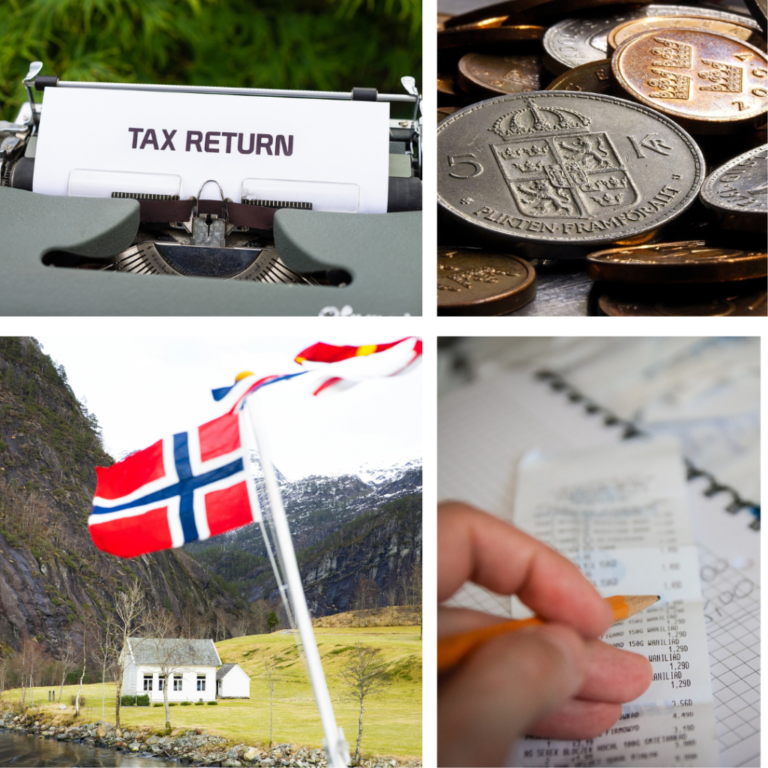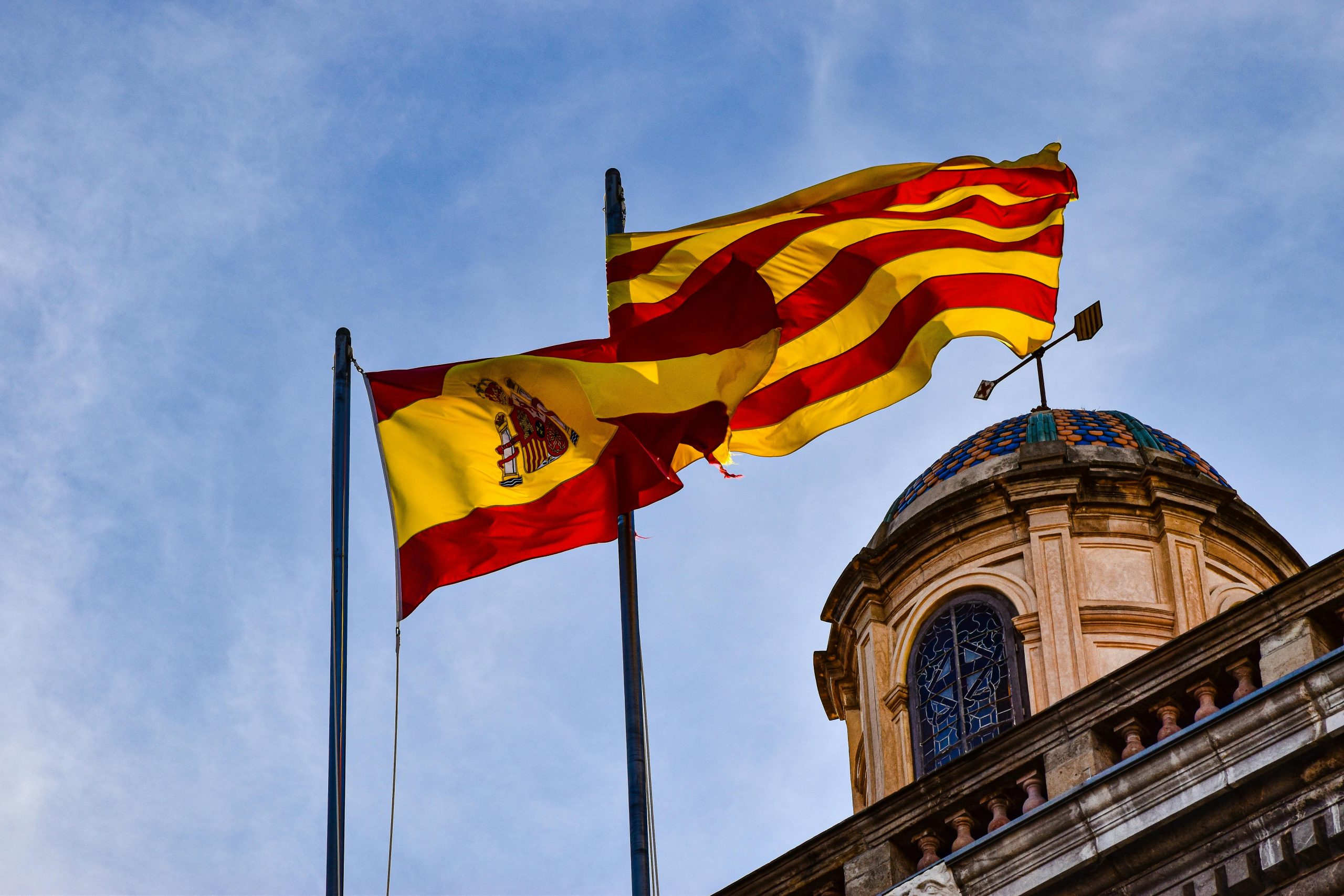Taxes in Norway for expats: Everything you need to know
Planning to move to Norway? There are many things you will have to foresee, including tax issues. Find out all you need to know about taxes in Norway.
Norway isn’t only known for the beauty of its fjords, its northern lights and cities that combine modernity and Viking traditions. It also stands out from other European countries for its high quality of life, which is why many people choose it as a place of temporary or permanent residence. If you aren’t one of them and plan to move to this Nordic country, you’ll want to be aware of taxes in Norway. Knowing the country’s tax regime will help you better plan your stay and avoid surprises that can turn into headaches.
We want to help you, so we’ve put together this complete guide to taxation in Norway. We tell you which ones you should pay, either as an individual or if you have a company, what the approximate values are and much more.
Are taxes high in Norway?
Like most people, you probably know little or nothing about the Norwegian tax system. Taxes are a key part of its small but thriving economy. Did you know that this country is one of the richest in the world? Yes, together with Switzerland, Ireland, Luxembourg and Liechtenstein, they top the list of the best economies, at least in the Old Continent. In fact, Norwegian GDP per capita is close to $70,000 per year. While the cost of living is higher, wages are also higher (for example, the average gross wage is 183% higher than in Spain). Not bad, don’t you think? But, what about taxes?
Generally speaking, taxes in Norway aren’t low, but they aren’t too high either. The country’s high level of social welfare and excellent public services are financed through a progressive and robust tax system. In other words, while Norway is among the highest taxed countries in Europe, taxpayers are rewarded with quality public services, from free education to universal health care and generous pensions. This is similar to the welfare model in Nordic countries such as Sweden and Denmark.
Another feature of the Norwegian tax system is that it’s based on a sliding scale, where higher income earners pay a higher tax rate, with a top rate of up to 38.52%. The tax calculation in Norway is also influenced by marital status and the number of dependent children of the taxpayer. This means that the tax system isn’t only progressive, but also adapts to personal circumstances, so that each taxpayer pays taxes according to his or her real economic capacity.

Taxes in Norway for individuals or natural persons
In Norway, taxes for individuals or natural persons cover both direct and indirect taxes. These are used to finance the country’s excellent social welfare system, which includes free education, universal health care and social benefits.
Direct taxes are taxes that are paid directly by the taxpayer on income, wealth or profits. They’re usually applied progressively, which means that they increase in proportion to the individual’s ability to pay. In other words, they relate to the economic situation of the individual.
Indirect taxes are taxes that are added to the price of goods and services and are therefore paid by the consumer when making a purchase. Indirect taxes are usually proportional, i.e. the same rate is applied regardless of the economic capacity of the individual.
Here are the main taxes affecting individuals in Norway, with examples and specific rates.
1. Personal Income Tax (IT)
Personal income tax in Norway is a progressive system that taxes the income of individuals and is applied differentially depending on the amount and source of income. This tax is designed to be equitable, meaning that higher income earners pay a higher proportion of tax.
The income tax is based on a basic rate of 22% that applies to the net income of all taxpayers, regardless of their income level. At the same time, however, it’s structured in a progressive manner in several steps or steps that apply different percentages. These additional income brackets mean that the percentage increases gradually as income rises, with the last bracket being the highest. The final rate paid by an individual is therefore a combination of the basic rate plus the progressive brackets.
We help you understand this with an example: Imagine you have an annual income of kr 800,000 ($75,308). In that case, you would be taxed at 22% on your net income and you’d pay additional taxes in two brackets: The first bracket: 1.7% on the first kr 650,000 ($61,187), the second tranche: 4% on income between kr 650,000 ($61,187) and 800,000 ($75,308).
2. Tax on heritage
Norway imposes a wealth tax on taxpayers with substantial wealth. In other words, it aims to promote fiscal equity and redistribute wealth, while helping to finance public services and the social welfare system in the country.
This tax is levied on a person’s net wealth, calculated as the value of all assets (e.g. property, vehicles or investments) minus debts. At the same time, there’s an exemption threshold, which means that the first kr 1,700,000,000 ($160,029,500) of net assets are exempted from the tax. The latter is particularly beneficial for people with modest assets, who don’t have to pay the tax if they don’t exceed this threshold.
3. Taxation in Norway: Social Security
As in most developed countries, both employees and employers must contribute to the Norwegian social security system. However, in this case the payments are less onerous than in other corners of the world.
Norwegian workers must contribute 8.2% of their gross salary to social security, which finances pensions, unemployment benefits and other benefits. Employers also make an additional contribution of approximately 14.1% on their employees’ salaries. Meanwhile, self-employed workers and freelancers must contribute 11.1% of their gross income to social security.
If you’re a frequent traveller and want to stay connected without worrying about costly roaming or looking for a new SIM at every destination, Holafly’s subscription plans from Holafly subscription plans are for you. With a single eSIM, enjoy internet in more than 170 countries for one fixed price and no bill surprises. Travel without limits and connect easily and safely! 🚀🌍

4. Value Added Tax (VAT)
VAT in Norway is one of the highest in Europe, with a rate of 25% for most goods and services (including food, clothing, consumer products, technology, entertainment services and luxury goods). Despite its high value, it’s a true reflection of the high level of public services in the country.
However, reduced rates are available for certain specific products and services. For example, for food and non-alcoholic beverages it’s 15%, except for raw fish, where 11.1% applies. Note that Norway is one of the world’s leading producers of salmon.
For hotels, cultural and sporting activities and public transport the rate is 12%. There are also products that are exempt from VAT, such as newspapers, books and e-books, as well as medical and educational services.
5. Fuel and vehicle tax
Norway applies high taxes on fossil fuels, reflecting its focus on environmental sustainability. Fuels such as petrol and diesel are taxed, as are the purchase of vehicles, especially those with high emission levels.
These fiscal policies have been instrumental in Norway’s leading adoption of electric vehicles and reducing its dependence on fossil fuels, in line with its environmental and sustainability goals.
6. Tax on specific products (excise duties)
Norway applies additional indirect taxes on certain products considered to be luxuries or to have an impact on health, such as tobacco, alcohol and sugary drinks. For example, a bottle of wine can be taxed at around kr 100 ($9.41) , while tobacco is taxed at a high rate, adding approximately kr 120 ($11.30) per packet of cigarettes. As you can imagine, the purpose of such a tax is to discourage the consumption of such products.
Another excise tax is the one levied on the registration of vehicles. When registering a vehicle in Norway, a registration tax is payable, which varies according to factors such as the vehicle’s weight, CO2 emissions and other aspects related to its environmental impact. For a standard vehicle with moderate emissions, the registration tax could be around kr 60,000 ($5,648), while electric vehicles are usually exempted from this tax as part of sustainability incentives.

Taxation in Norway for legal persons or businesses
In Norway, companies are also subject to various types of taxes, both direct and indirect, which aim to balance revenue collection with the promotion of sustainable and socially responsible economic activities. With this tax scheme, it maintains a balanced business environment, stimulating responsible investment and sustainability, in line with its social and environmental development objectives. While the high tax burden in certain sectors can be a challenge for some specific industries, the country is particularly attractive for companies that value sustainability and innovation,
The following are the main taxes applicable to legal persons or companies in Norway.
1. Corporate Income Tax
This is the main tax paid by companies in Norway. Its rate is 22% on net profits, although it may vary for specific sectors, such as oil and gas, which are subject to higher tax rates due to their high level of profitability and environmental impact.
Example, if a company with a net profit of kr 1,000,000 ($94,135) will have to pay kr 220,000 ($20,709) in income tax.
2. Net Wealth Tax
Companies in Norway aren’t subject to a national net wealth tax, but in some cases, individual shareholders are taxed on the value of their shares in companies. This can indirectly influence the company’s asset management, as it affects the valuation and investment decisions of shareholders.
3. VAT for businesses
As you already know, VAT in Norway is 25% and applies to most goods and services, including imported products. In the case of businesses, only those that generate annual revenues in excess of kr 50,000 ($4,706) are obliged to register for VAT and charge the corresponding tax to their customers. They can also deduct VAT paid on their purchases and business expenses, minimising the impact of VAT on operating costs.
4. Excise duty on hydrocarbon activities
Companies operating in the Norwegian hydrocarbon industry are subject to special taxation due to the high revenues and the nature of the industry. The rate of tax on hydrocarbon activities is 56%. This is in addition to the standard corporate tax of 22%, resulting in an effective rate of 78% on revenues generated from oil and gas extraction.
For example, a hydrocarbon company generating revenues of kr 1,000,000 ($94,135) will have to pay the equivalent of kr 780,000 ($73,425) in taxes, split between the two tax rates.
5. Municipal and local taxes
In addition to national taxes, some Norwegian municipalities levy additional taxes to finance their local services. These taxes may vary by locality, although they tend to be low compared to national taxes. Local taxes are used to improve infrastructure, public services and other community needs.
6. Tax incentives and deductions
Norway offers some tax incentives to promote research and development (R&D), as well as the use of sustainable technologies and investment in renewable energy. Companies can benefit from tax deductions on R&D expenditures and in some cases receive subsidies. These tax benefits are intended to encourage innovation and sustainable growth in the country. Thus, a company investing in an R&D project could receive a deduction of up to 20% of the project costs.
Tax benefits in Norway
Norway offers a number of tax benefits and deductions for both companies and individuals. These benefits are aimed at fostering innovation, sustainability and social and economic well-being. Do you know what the main benefits are for both types of taxpayers? Here we tell you about it with this simple chart!
| Type of taxpayer | Benefit | Details |
|---|---|---|
| Companies | R&D deduction | Norway incentivises investment in research and development with tax deductions of up to 20% for companies carrying out projects in these areas. This applies to both start-ups and established companies, especially in sectors such as technology, biomedicine, and renewable energy. |
| Companies | Deductions in sustainable technologies | The country encourages the use of sustainable technologies and renewable energies, allowing deductions or even subsidies for companies that adopt responsible environmental practices. This includes projects related to energy efficiency, clean energy, and resource recycling. |
| Companies | Exemptions and reductions for start-ups and new companies | To encourage entrepreneurship, Norway offers benefits to start-ups and early-stage companies. This includes exemptions from certain local taxes and, in some cases, reduced tax rates during the first years of operation. |
| Companies | Tax credits and subsidies for regional activities | Norway implements incentive programmes for companies operating or establishing themselves in less populated regions or regions with limited economic development. These may include tax subsidies, low-interest credits and tax deductions to support infrastructure development and job creation. |
| Companies | Benefits for companies exporting products and services | Export-oriented companies can benefit from specific programmes that reduce their tax burden and promote their growth in international markets. In this way, Norway boosts the competitiveness of companies abroad. |
| Individuals | Mortgage interest deduction | Norwegian residents can deduct interest on mortgages and other loans from their tax return. It helps to reduce the cost of buying a house, which is attractive for those who decide to settle in Norway. |
| Individuals | Deduction for transport to work | Workers who travel long distances to reach their place of employment can apply a deduction for transport. It’s calculated on the basis of the distance travelled. |
| Individuals | Benefits for expats and foreign professionals | To attract global talent, Norway offers tax benefits to expatriates and foreign professionals moving to the country for work. These benefits can include temporary income tax relief and local tax exemptions, as well as deductions for relocation costs. |
| Individuals | Deduction for daycare and child care expenses | Norwegian families can deduct expenses associated with childcare, including day care and after-school activities. This deduction encourages parents to work and can be applied until their children reach a certain age. |
| Individuals | Medical expenses | Medical and health expenses (treatment, prescription drugs and others) that aren’t covered by the public health system can be deducted, as long as they exceed a minimum threshold. This provides financial relief to those facing high medical costs. |
Taxes in Norway for expats: Frequently Asked Questions
Residents in Norway are mainly liable to pay income tax, which varies according to income, and wealth tax, which applies to wealth above certain thresholds. In addition, they must also contribute to the social security system. Goods and services are taxed at a VAT rate of 25%, although some essential goods are taxed at reduced rates.
The personal income tax rate in Norway is progressive and varies according to income. The rate starts at 22% for low incomes, but can go up to 38.2% for higher income brackets. This system ensures that people with higher incomes contribute proportionately more.
Yes, Norway offers various tax incentives and deductions for companies, especially in research, development and sustainability sectors. Companies can deduct certain costs, access benefits for investments in sustainable technology and obtain tax reductions if they operate in less developed regions.
Wealth tax applies to individuals whose wealth exceeds the established thresholds. In general, the tax is 0.85% on net assets exceeding a specified value, although the rate may vary. This tax seeks a more equitable distribution and is based on the total value of assets, property and financial assets.
Yes, expatriates residing in Norway who meet certain residence requirements must pay tax on their income. However, the country offers specific tax benefits for expatriates, such as temporary tax deductions and relocation cost credits, to facilitate their integration. In addition, there are double taxation treaties with several countries to avoid paying taxes in both countries.





 Language
Language 


















 No results found
No results found







